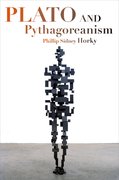I’ve just finished a draft of a short popular article for Omnibus, a journal for sixth-formers (ages 16-19) in the UK who are interested in Classics. The piece, which will be out in January 2015, is on how Aristophanes thematizes ‘up’ and ‘down’ in his representation of Socrates’ Thinkery in the Clouds.

Just who is more cuddly?
This isn’t the first time I’ve treated the character of Socrates in the popular imagination. In this circumstance, however, I am reminded of Heraclitus’ saying, that ‘the road up and down is one and the same’ (DK22B60), which hints at the point of the article. Here is a preview, and the entire article is available on my academia.edu web page:
In the history of philosophy, fewer first appearances are more memorable than the fantastic introduction of Socrates in Aristophanes’ Clouds, first performed in Athens in 423 BCE. Gliding aloft in a basket, propped up by a crane, Socrates asks the simple buffoon Strepsiades, who has come to learn the philosophic arts, ‘why do you call on me, mere creature of a day?’ (Clouds 223). At once, the audience knows that this strange man isn’t fit for terrestrial pursuits; he ‘walks on air, and studies the sun from above’, so as to mingle his peculiar cleverness with the ether (Clouds 225). He’s trying to figure out what goes up, and what’s going down, which he wouldn’t be able to do from the ground. Socrates’ special location, high up in his heroic chariot, also grants him conversational intercourse with the divinities – those lovely ladies known as the Clouds – which lights Strepsiades’ fire, his jealousy brewing. For the comic action of the play to start, Socrates must descend to Strepsiades’ level and cool the old stallion off; once Socrates orders Strepsiades to ‘sit down on the holy bed’ in order to be initiated into his school of philosophy, the Thinkery, his arrival on earth is complete (Clouds 253). The audience is now ready to see this ‘wise guy’ (sophos) in action…

